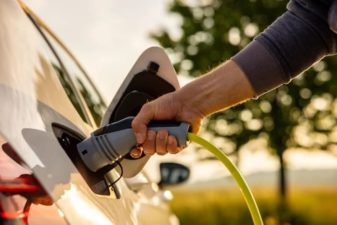This article was originally published on Fool.com. All figures quoted in US dollars unless otherwise stated.
Judging by the stock's almost 40% surge since the election on November 5, Wall Street believes Tesla (NASDAQ: TSLA) will be a big winner under the incoming Trump administration. Tesla CEO Elon Musk, who actively supported Donald Trump's campaign, has frequently spent time with the president-elect over the past few weeks.
Reports have emerged recently that the Trump team is considering changes to some key policies that could impact Tesla, such as the Biden administration's electric vehicle credit and potential regulations to aid the development of self-driving vehicles.
Nobody knows what will happen, but Musk's ties to Trump understandably fuel speculation that Tesla could thrive during Trump's presidency.
But what should investors do with the stock right now? After all, the company and stock are two different things.
Here are some things to consider if you plan to buy, sell, or hold Tesla today.
Musk's Trump ties could move Tesla's most important catalyst forward
Tesla has evolved into a sprawling technology company that includes electric vehicles, humanoid robotics, energy, and artificial intelligence (AI). Elon Musk has repeatedly stated that self-driving vehicle technology is immensely important to Tesla's future. Currently, Tesla's core business is selling vehicles. However, it hopes to unleash a robotaxi fleet of low-cost, self-driving electric vehicles that it could monetise via ride-hailing services, fees, or subscriptions.
Musk announced during Tesla's Q3 earnings call that it plans to launch a robotaxi service in California and Texas next year and is currently testing its robotaxi vehicle (the Cybercab) with human driver assistance. Driverless vehicles are a huge deal, so deploying a fleet will be a tremendous regulatory task. SAE International regulations currently grade autonomous driving technology on a scale of six levels, zero through five.
Technically speaking, Tesla's current self-driving technology only has an SAE classification of level two, which still requires an attentive driver. Alphabet's Waymo has achieved level four and currently offers autonomous ride-hailing services in a small handful of cities in the U.S.
Tesla's robotaxi success (or failure) will ultimately hinge on how well the technology works. Musk is infamous for missing timelines, so Tesla has much to prove before investors can feel confident that a viable robotaxi business is imminent. At the same time, Musk has demonstrated his ties to Trump. The president-elect has accompanied Musk at multiple events and tapped him to co-lead a government project to cut wasteful spending.
It's speculating at this point, but logically, Musk could have an inside track to advocate for policies that might benefit Tesla, including regulatory decisions that aid the company's robotaxi development.
Weighing the potential future versus the current reality
A successful robotaxi business would be a game-changer for Tesla, but it's tough to quantify what that might look like. Investors shouldn't disregard what Tesla is right now based on what it might be in the future.
Right now, Tesla is growing, but it's struggling to generate the kind of growth that supports its current valuation. The company's progress in energy storage is impressive (up 52% year over year in Q3), but it's a small chunk of the overall business. Tesla's total revenue only grew by 8% in Q3, and non-GAAP earnings per share grew by 9%. Global electric vehicle adoption (excluding China) has slowed since mid-2023, and EV purchases in the U.S. still depend on aggressive financial incentives.
Analysts currently estimate Tesla will grow earnings by about 15% annually over the next three to five years, though I would wager that estimate excludes a wildcard variable like the robotaxi. The stock trades at a forward price-to-earnings (P/E) ratio of around 90, which is abhorrently expensive if analyst estimates prove accurate.
Tesla: Buy, sell, or hold?
If it were about hard numbers alone, Tesla's valuation would make the stock a sell, but it's not that simple. Investing in Tesla has always required a leap of faith because the company's CEO is remarkably ambitious. And to be fair, faithful Tesla shareholders have enjoyed staggering long-term returns of more than 1,400% over the past five years alone.
A Tesla Robotaxi may seem silly to some people, but so did the Cybertruck. Even though it took longer than Musk promised, Tesla did deliver the truck to market, and it was America's third-best-selling EV model across the entire industry in Q3. The lesson? Don't rush to count Tesla out.
Now that I've said that, it's hard to justify buying the stock at these prices. Tesla's valuation never seems to make total sense (as with many story-driven stocks). But high valuations can act like gravity, and everything eventually falls back to Earth. Investors should consider Tesla a hold for now. Tesla's a high-beta stock, so a broader stock market pullback might give investors a far better buying opportunity.
This article was originally published on Fool.com. All figures quoted in US dollars unless otherwise stated.









